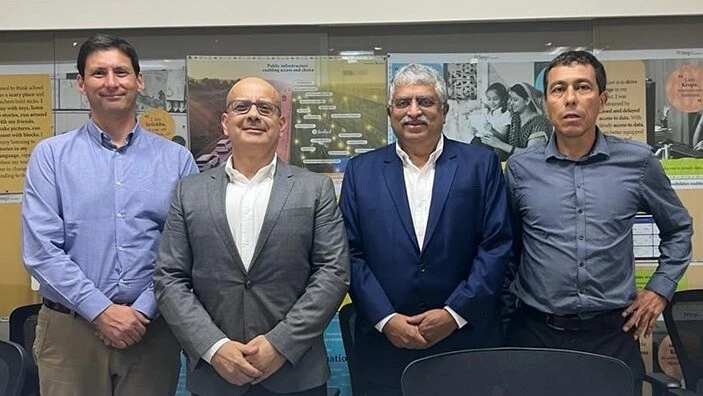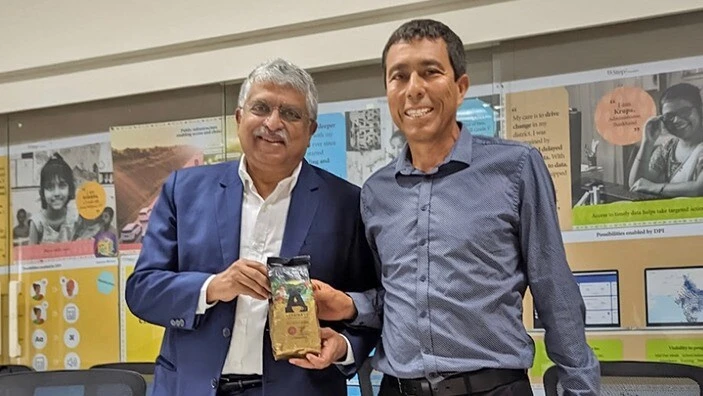A new ‘Playbook’ on how developing economies can use digital infrastructure as a springboard to greater prosperity has been developed by two academics at Cambridge Judge Business School, Professor of Marketing Jaideep Prabhu and Carlos Montes, a Visiting Fellow.
The ‘Nationwide Digital Infrastructure at the Service of Prosperity’ guide describes how India was able to use open digital infrastructure for identification, payment and other purposes to accelerate its development, and the paper aims to provide a blueprint for other countries to follow suit.
Digital infrastructure piloted in Ethiopia and Peru

Digital infrastructure principles behind the new Playbook, developed at the Centre for India and Global Business at Cambridge Judge, which is directed by Jaideep, have been piloted in Ethiopia and in Cajamarca, Peru, through various initiatives including financial education and hospital efficiency.
There are plans by Jaideep and Carlos to distribute the Playbook to large Indian companies in India and the UK, and to showcase India’s effective use of open digital infrastructure to such countries and territories as Peru, Chile and Zanzibar (Visit the Cambridge Innovation Hub for Prosperity for progress on these projects.)
Such digital infrastructure has “the potential to become development ‘silver bullets’ removing key obstacles to prosperity,” the 23-page Playbook says. “Not all countries have benefited equally from global economic growth, partly because many people lack secure property rights and access to credit, public services, information, and other critical economic infrastructure.”
The Playbook suggests that such digital approaches as permitting universal identification, a unified payment system, and digital data that is owned by citizens can “empower all citizens by lowering the barriers to formal property rights and key modern economic institutions”.
India’s digital transformation is a model for other countries to follow

The paper was brought to the attention of Nandan Nilekani, chairman and co-founder of Infosys and main architect of India’s digital transformation, who provided feedback on the paper and invited Carlos and his colleagues from Peru, Ruben Sanchez and Cesar Antunez de Mayolo, to India’s high-tech centre Bangalore.
They visited the MOSIP and G2P payments projects at the International Institute for Informational Technology Bengaluru (IIIT) research institute, the EkStep Foundation for access to learning, the e-Government Foundation that helps cities and states with public services, and the Foundation for Interoperability of the Digital Economy.
“India’s nationwide digital infrastructure approach and the effort to make these processes open access may become India’s greatest contribution to the world in the years ahead,” the Playbook concludes. “For low and middle-income countries, adopting a nationwide digital infrastructure approach like that developed in India may be the most effective way to enhance their political, economic, and social development. This unique opportunity should not be missed.”
Featured research
Montes, C. and Prabhu, J. (2023) Playbook on nationwide digital infrastructure at the service of prosperity.
Centre for India and Global Business
Understanding, promoting, and engaging with innovators and innovations in India and the world.





